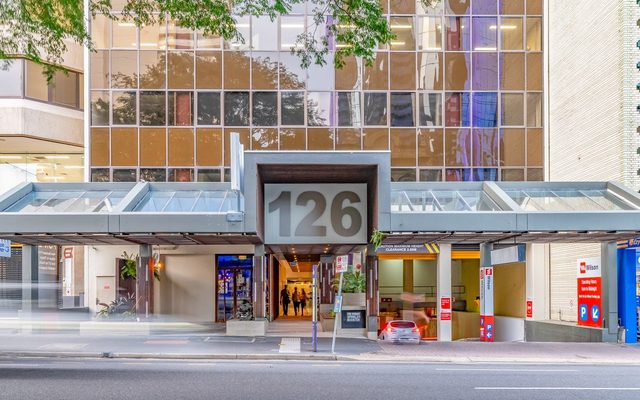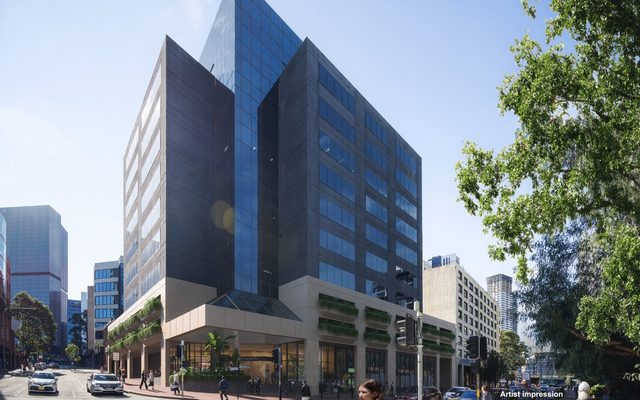This article is from the Australian Property Journal archive
THE future of the office market and a further repricing of tens of billions of dollars in asset valuations are on the line, with the Fair Work Commission to consider whether the right to work from home should be enshrined into industrial awards.
Workplace Relations Minister Tony Burke has instigated the review which could affect the working habits of up to around 2.2 million Australians. If the findings are to the affirmative, another several million could push to negotiate for similar conditions.
The review follows this month’s legislation of right-to-disconnect laws that give workers the right to not engage with after-hours work calls, emails and texts. The Fair Work Commission could change workplace conditions following its working-from-home review by varying industrial awards, without the need for passing new laws.
Prime Minister Anthony Albanese told a press conference in Sydney yesterday that working from home provided flexibility and productivity improvements.
“Rather than spending up to three hours – many people travel an hour and a half each way to and from work – that activity can be done more productively,” he said.
“I think what we need to do is look for win-win. We need to look where it’s appropriate, where it boosts productivity, where it is helpful.”
Office values have tumbled worldwide as COVID forced an existential crisis on the sector. Working from home became the new normal as lockdowns kept workers in their homes and CBDs empty. As workers returned to the office with three- and four-day weeks common, a number of businesses decided to use less real estate, delayed making lease commitments, or utilised hybrid working venues, driving vacancies in the traditional CBD office markets to long-term highs.
The review comes just as CBRE data shows office occupancy levels in some cities are within touching distance of pre-COVID rates. Pacific head of research Sameer Chopra said numbers in the three months to October showed peak day visitation at 83% of pre-pandemic levels in Sydney and “almost close to 100%” in Perth, he told the firm’s Talking Property podcast. CBRE said the average CBD occupancy reached 71% in the third quarter of 2023, a jump on the 54% in the prior three months. However, Melbourne is still lagging after its series of strict pandemic lockdowns, averaging just 56% and peaking at 63%.
Around 37% of Australians regularly work from home, according to the Australian Bureau of Statistics.
Property funds management giant Charter Hall told the ASX-listed company’s interim earnings call results this week “we’re seeing…finally organisations cracking the whip and expecting people to be in the office at least three or four days a week”.
“Many companies are moving to five days a week, and as the labour market softens in many, many sectors, we’re going to see a much greater densification and use of office space as people value their jobs a little more.”
Charter Hall has recently completed 150,000 sqm of new office towers and this week kicked off construction at its $1.8 billion Chifley South tower, continuing to back the flight-to-quality trend taking place across the broader office market that has seen prime-grade assets with amenities such as end-of-trip facilities and on-site hospitality venues favoured by businesses and workers over secondary-grade spaces.
The structural changes in the market are still wringing out the value from office towers. Over the first half, office revaluations caused a $3.5 billion hit to the value of Charter Hall’s total portfolio. Dexus saw another $687 million wiped from its portfolio in the half – following a $1.184 billion devaluation in the previous half.
During 2023, Dexus sold its 44 Market Street tower in the Sydney CBD at a 17.2% discount to book value, and the 1 Margaret Street tower at a 21% discount to book value.
Prior to Burke instigating the review, Colliers analysis had suggested that more than 25% could be wiped off the value of prime Sydney office tower values from the peak in June 2022 to an expected trough in September this year.
At the top of the market, yields for prime CBD buildings were sitting between 4.25% and 4.5%. Colliers said they have risen by 62.5 basis points since, and on its forecast yields will have risen by 137.5 basis points by the market hits bottom.
Uncertainty around the future of office towers, together with higher interest rates, contributed to commercial real estate transactions plummeting by nearly half in 2023 to $39.6 billion, according to MSCI.
Albanese government hoping to boost productivity
The Albanese government is looking to lift the country’s productivity and get a sluggish economy moving. Productivity is forecast to increase at a rate of less than 2% until June next year.
Burke told Sky News that there are “plenty of examples” where working from home has improved productivity, including for businesses.
“Sometimes it means they’re not paying for the same amount of desk space at their own premises, which can be a significant benefit for some employers.”
Opposition Leader Peter Dutton was concerned about working from home impacting productivity negatively.
“We have to be careful that the Albanese government just doesn’t side with the unions on every occasion, because all that happens is if the price of wages go up too dramatically in an inflationary environment you will end up with much higher prices for consumers.”




